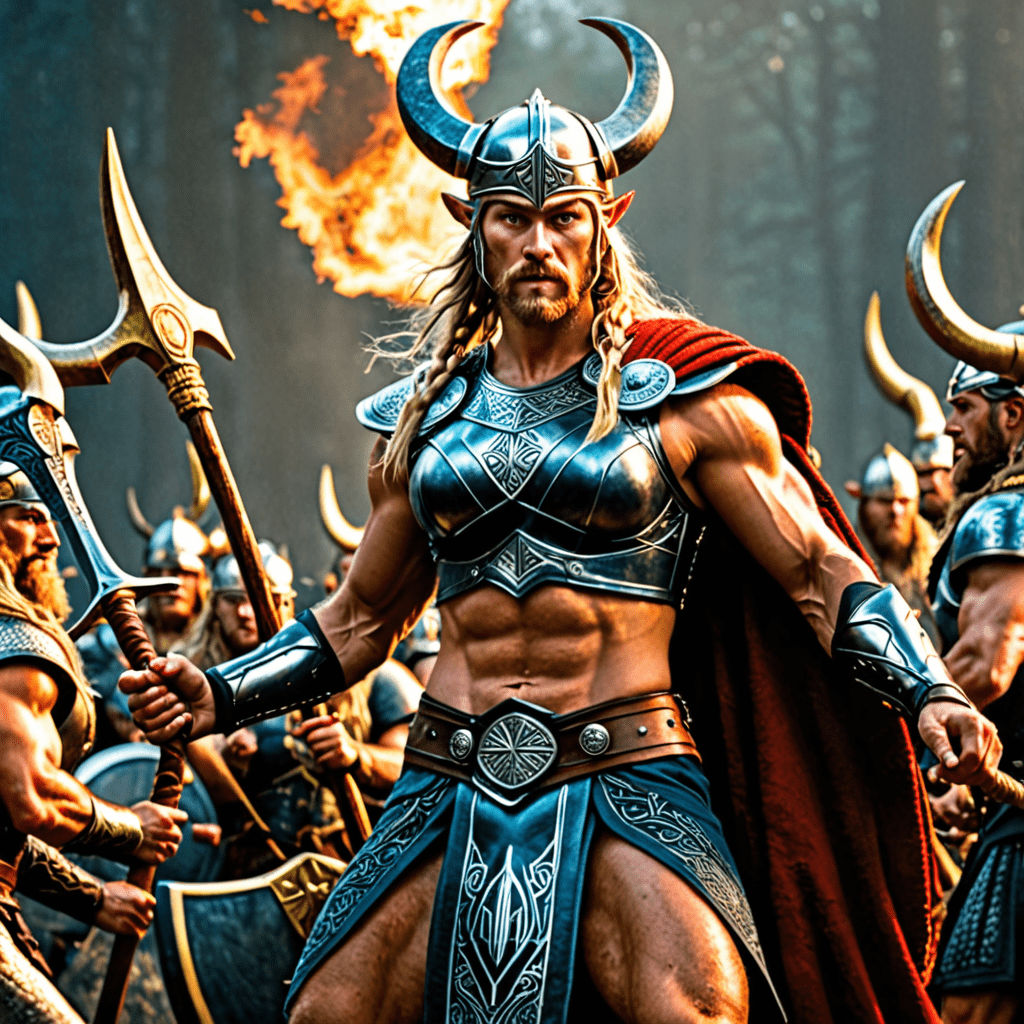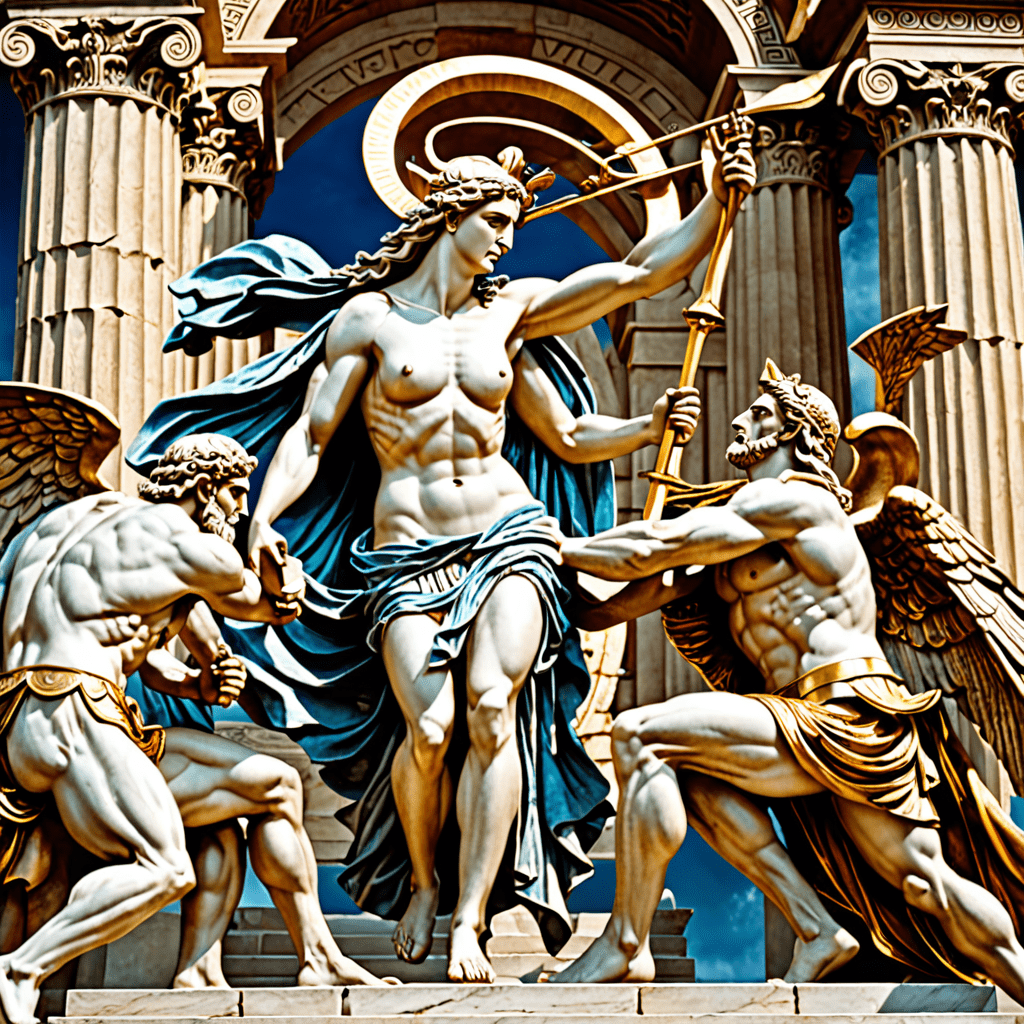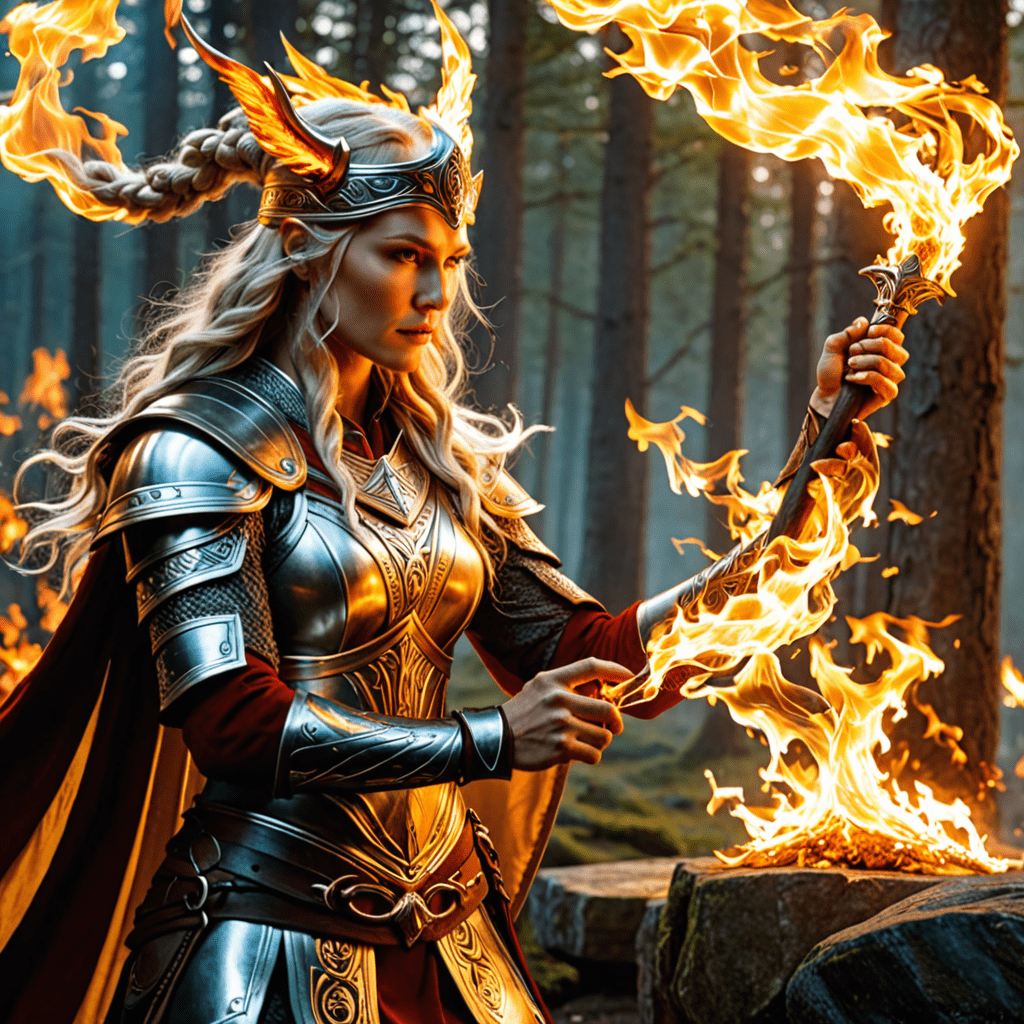The Influence of Norse Mythology on Norse Laws and Justice
Norse mythology, deeply rooted in the beliefs and culture of the ancient Norse people, played a significant role in shaping not only their religious practices but also their societal structure, including laws and concepts of justice.
The Connection Between Norse Mythology and Icelandic Legal System
One of the most well-documented examples of Norse mythology influencing laws and justice is seen in Iceland during the Viking Age. The Icelanders based their legal system on the Grágás (Grey Goose Laws), a legal code that incorporated elements of Norse mythology. For instance, the myth of Þórr (Thor) served as an inspiration for laws related to protection and communal safety, reflecting the values of strength and protection found in Norse myths.
The Role of Mythical Figures in Legal Proceedings
Norse mythology also influenced the way justice was pursued in Norse societies. Mythical figures such as Odin, associated with wisdom and knowledge, influenced the idea of fair judgment and justice. The presence of mythical symbolism in legal proceedings aimed to uphold the idea of divine justice, ensuring that laws were implemented fairly and justly.
Implications for Modern Legal Systems
Even though Norse mythology no longer directly shapes modern legal systems, its influence can still be observed in various cultural aspects. The emphasis on concepts like honor, duty, and community that are evident in Norse mythology continues to influence the principles of justice and law in contemporary societies.
In conclusion, the influence of Norse mythology on Norse laws and justice highlights the deep interconnection between religious beliefs, cultural norms, and societal structures. By studying how mythological narratives were integrated into legal frameworks, we gain valuable insights into the complex relationship between mythology and justice in ancient Norse societies.
FAQ: The Influence of Norse Mythology on Norse Laws and Justice
What role did Norse mythology play in shaping Norse laws and justice systems?
Norse mythology had a significant impact on Norse laws and justice. Norse gods like Odin, the All-Father, were associated with wisdom and justice, influencing the legal framework that emphasized fairness and balance.
How did Norse mythology influence the concept of justice in Norse society?
Norse myths, such as the story of the god Tyr sacrificing his hand to bind the wolf Fenrir, highlighted the importance of sacrifice for the greater good of society. This concept of sacrifice and accountability was reflected in Norse legal practices.
Were there specific laws directly inspired by Norse mythology?
Indeed, Norse legal codes often drew inspiration from mythological stories. For example, the concept of “weregild” or blood money, where a compensation is paid for harm caused, finds roots in the myth of the Norse god Loki compensating for his mischief.
How did Norse mythological beliefs influence the idea of justice for crimes committed?
Norse myths involving divine retribution for wrongdoing, such as the concept of Ragnarok where gods and mortals faced consequences for their actions, reinforced the idea of accountability and justice for crimes committed in Norse society.




